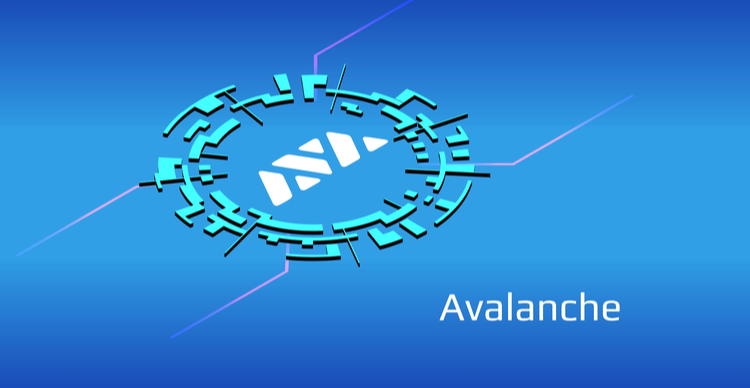Blockchain analytics platform Nansen published a comprehensive research report on the emerging EVM compatible layer1 platform Avalanche yesterday.
The Avalanche ecosystem, aimed at solving the scalability issues of Ethereum, uses sub-second finality of transactions, unique consensus protocol upgrade and transactional throughput to deliver cost-effective products. Major Ethereum projects such as Aave and Curve have already migrated to Avalanche with more DeFi and crypto dApps expected to follow.
Here are 10 key highlights of Nansen’s report:
- Robust Landscape:
Avalanche’s comprehensive landscape caters to every prominent need of the blockchain ecosystem from DeFi and NFTs to DEX and P2E. Its compatibility with the Ethereum Virtual Machine means that notable dApps from across the blockchain spectrum can migrate without any hassle. - Total Value Locked and dApps:
Avalanche records a TVL of US$13.9 billion, more than 25% of which comes from Aave. Avalanche’s native applications Trader Joe and Benqi make up a majority of the rest of the project’s TCL. Other notable native applications include the most successful OHM fork Wonderland and the Play and Earn battle game Cradaba. - The Avalanche Bridge:
To support the multichain future of the blockchain world, Avalanche has developed the Avalanche Bridge which allows swift, secure and cost-effective transfer of ERC20 Tokens between Ethereum and Avalanche’s C-Chain. Transfer of a number of ERC20 Tokens including WETH, USDC and WBTC is supported by the Bridge. A transfer between Ethereum and Avalanche typically takes about 15minutes and costs around $3. - Activity on the Avalanche Bridge:
The volume of Activity on the Bridge reached USD 370mm in August this year after the Avalanche Foundation announced the ‘Avalanche Rush’, a DeFi incentive project of USD 180mm. Backed by reputable VCs and liquidity mining programs, activity peaked on September 23rd with the bridge hitting a volume of USD 600mm. - Transaction Throughput:
Avalanche has displayed a transactional throughput of more than 4,500 tps and a transactional finality of less than 2 sec. In comparison, Bitcoin has a throughput of 7tps and transactional finality of almost 60 minutes. Ethereum also ranks behind Avalanche with a transactional throughput of 14tps and a transactional finality of 6 minutes. - Daily Transactions:
A significant uptick in daily transactions was witnessed after the announcement of the Avalanche Rush initiative in August attracted blue-chip DeFi projects to the platform. A similar upward trend was also seen last month as a result of a strategic partnership by Avalanche with Deloitte. The recent partnership with Fireblocks is expected to further improve Avalanche’s numbers in terms of daily transactions in the coming months. - Avalanche Vs Ethereum Gas Fees:
The high gas fees on Ethereum, especially since August this year, has been blamed for pricing out retail participants and cannibalising business models. While Ethereum has blamed the increase on the growing popularity of NFTs, Avalanche has continued to stand up to its commitment to cheap and accessible projects. The stark difference was seen on the 26th of November when the daily gas paid was $1,311,682 on AVAX and $51,389,748 on Ethereum - Avalanche’s focus on NFTs:
Various NFT projects like sports-based NFT marketplace Topps, metaverse NFT ecosystem Kalao, P2P NFT marketplace Venly Market and play-to-earn NFT game Crabada have leveraged the benefits of the Avalanche network. USD 200mm of the funds recently raised by Avalanche foundation is being dedicated to NFTs. However, the most impactful applications on Avalanche are DeFi dApps. - Avalanche Vs Ethereum Transaction Ratio:
The ratio of transactions between the two platforms has increased from 1% at the beginning of August to a peak of 54% on the 26th of November. This has mainly been attributed to the low gas fees on Avalanche. On 26th November, AVAX processed more than half the amount of Ethereum daily transactions at a cost cheaper than 20 times that of Ethereum’s. - Smart Money Proportion:
Avalanche has been one of the top performers among alternative L1 chains attracting attention from investment firms like Three Arrows Capital and Polychain Capital. Avalanche is home to 31% of total Smart Money, 46% of total Smart NFT minters, 24% of total Smart NFT Traders. The platform is ranked within the top 5 in smart money engagement.
While the higher performance, faster transaction and cheaper fees position Avalanche as a prime candidate for being the next Ethereum-killer, it is the long-term impact of its liquidity mining incentives that will determine whether Avalanche’s increasing traction over the last 12 months is here to stay.
However, its vibrant ecosystem of native apps and popular Ethereum based protocols and shared security model make it an exciting platform to look out for in the crypto world.
The post 10 key highlights from Nansen’s deep dive into Avalanche appeared first on Coin Journal.














